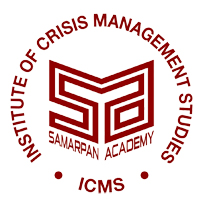Overview
Overviews of MA Nepali in Sociology Program at Pashupati Multiple Campus, Mitrapark, Chabahil, Kathmandu (affiliated with TU)
The Master of Arts (MA) in Nepali at Pashupati Multiple Campus, Mitrapark, Chabahil, Kathmandu, is affiliated with Tribhuvan University (TU). This program combines traditional Nepali literature and modern critical theories to prepare students for advanced academic and professional opportunities. The program focuses on linguistic, cultural, and literary studies, offering an in-depth understanding of Nepali language and literature.
Course Overview
The MA in Nepali program is an interdisciplinary academic endeavor designed to equip students with a robust foundation in the Nepali language, literature, and cultural studies. It incorporates linguistics, criticism, history, and creative writing to prepare students for diverse professional paths. The curriculum emphasizes research and practical applications, making it ideal for those aiming for careers in academia, journalism, or public administration.
Program Duration
The program lasts two years and is divided into four semesters, each consisting of 16 credits for 64 credits. Students are assessed through internal evaluation (40%) and external examination (60%).
Eligibility Criteria
General Eligibility:
-
Applicants must hold a Bachelor’s degree in any discipline from a university recognized by Tribhuvan University.
-
A degree in Nepali language or literature is preferred but not mandatory.
Specific Requirements:
-
Proficiency in Nepali and a basic understanding of Nepali literature are beneficial.
-
International students must meet equivalent academic standards and demonstrate proficiency in Nepali.
Eligibility in Nepali:
-
क) त्रि.वि. बाट कुनै भी विषय मा स्नातक तह उत्तीर्ण के होके योग्यता गर्ने सक्षमात छन्।
-
ख) त्रि.वि. मान्यता प्राप्त विद्यालयहरूका चारो मो समकक्षता प्राप्त गर्नेको योग्यता।
Admission Process
-
Entrance Examination:
-
Conducted by the Faculty of Humanities and Social Sciences, TU.
-
Includes multiple-choice and subjective questions on Nepali literature and language.
-
-
Application Submission:
-
Completed application form
-
Academic transcripts and certificates
-
Two passport-sized photographs
-
-
Selection:
-
Based on merit and departmental capacity
-
Course Outline
The curriculum is designed to provide a balanced mix of theoretical and practical knowledge in Nepali literature, linguistics, and cultural studies.
Program Objectives
-
Provide students with an in-depth understanding of Nepali literature, linguistics, and culture.
-
Foster advanced research skills to analyze and contribute to Nepali studies.
-
Prepare students for roles in academia, creative writing, and public administration.
-
Promote ethical, cultural, and intellectual development.
-
Enhance critical thinking and analytical skills applicable to real-world scenarios.
Teaching Methodology
The teaching methodology combines lectures, seminars, and project-based learning. Students deepen their understanding through discussions, group activities, and presentations. The program emphasizes using technology and digital tools for research and learning.
Learning Outcomes
Upon completion, graduates will:
-
Exhibit mastery of Nepali language and literature.
-
Conduct independent research and critical analysis.
-
Apply linguistic and literary theories to real-world contexts.
-
Demonstrate creative and academic writing proficiency.
-
Contribute to the preservation and promotion of Nepali culture and heritage.
Future Scope
Graduates can pursue:
-
PhD programs in Nepali literature or linguistics.
-
Careers in education, journalism, cultural preservation, and public policy.
-
Research roles in academic institutions and cultural organizations.
Career Prospects
-
University Lecturer
-
Researcher
-
Writer/Editor
-
Cultural Consultant
-
Civil Service Roles
Scholarship Opportunities
PMC offers scholarships to meritorious and financially disadvantaged students as per TU guidelines. Scholarships for marginalized and underrepresented groups are also available.
Fee Structure
TU and the PMC Fee Determination Committee determine fees. For detailed information, contact the campus administration.
Extracurricular and Co-Curricular Activities
The program includes workshops, literary events, and community outreach activities. These initiatives foster creativity, teamwork, and practical skills.
Real-World Application
Students apply their knowledge through internships, research projects, and collaborations with cultural institutions, preparing them for practical challenges.
Sustainability and Social Impact
The program emphasizes sustainable cultural practices and promotes preserving Nepali heritage, fostering a sense of responsibility among students.
Skill Development
-
Research and analytical skills
-
Advanced writing and editing proficiency
-
Public speaking and presentation
-
Critical thinking and problem-solving
-
Digital literacy and project management
Global Perspective
The curriculum integrates global literary and linguistic theories, preparing students to engage with international academic communities and contribute to global discourse on Nepali studies.
Facilities and Support
-
Well-equipped classrooms and libraries
-
Access to online databases and digital resources
-
Career counseling and academic advising
-
Support for thesis and research projects
Why Choose the MA in Nepali Program?
This program balances tradition and modernity, preparing students to contribute meaningfully to academia and society. Its research and cultural studies focus provides a strong foundation for diverse careers.
Is the MA in Nepali Program Right for You?
This program is ideal for those passionate about the Nepali language, literature, and culture and committed to their preservation and development.
What is the Future of the MA in Nepali Program?
The program’s emphasis on research, critical analysis, and cultural preservation ensures its relevance in academia, public policy, and cultural organizations. Graduates are well-equipped to address modern challenges in these fields.
How to Improve Your Study
Engage actively in coursework, participate in literary events, and collaborate with peers on projects. Regularly read Nepali and international literature to enhance your understanding. Utilize resources like libraries and online journals, and seek mentorship from faculty.
Conclusion
The MA in Nepali program at Pashupati Multiple Campus provides an unparalleled opportunity to delve into the richness of Nepali language and literature. With its academic rigor and practical application blend, the program prepares students for impactful careers and lifelong contributions to Nepali studies.
Contact Pashupati Multiple Campus's administrative office for detailed information on the MA Nepali course, including fees, scholarships, facilities, counseling, eligibility criteria, etc.

















